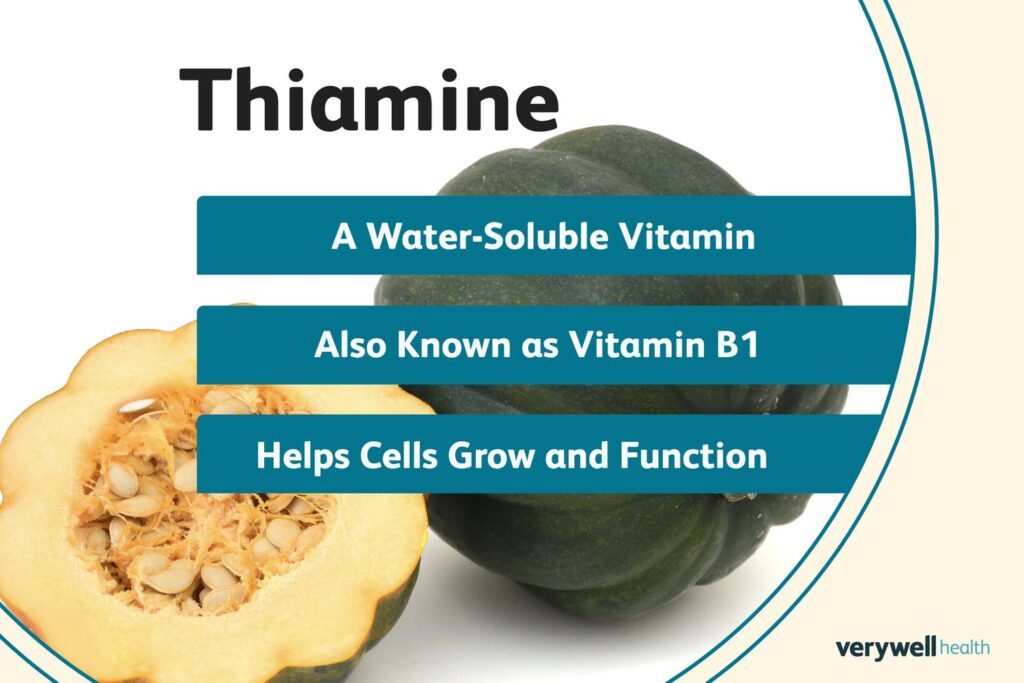Introduction
In today’s fast-paced lifestyle, maintaining optimal nutrition is a challenge for many. Vitamins play a crucial role in keeping our body functioning smoothly, and one such essential vitamin is thiamine (vitamin B1). A thiamine supplement has become increasingly popular as more people recognize its importance in supporting overall health, energy production, and neurological function. This article provides a comprehensive look at what a thiamine supplement is, its benefits, sources, and why your body might need it.
What is Thiamine?
Thiamine, also known as vitamin B1, is a water-soluble vitamin that belongs to the B-complex group. It plays a vital role in converting carbohydrates into energy, supporting the nervous system, and maintaining heart health. Since the body cannot store large amounts of thiamine, it must be obtained regularly from diet or supplements.
A thiamine supplement helps meet your daily requirements, especially if you are at risk of deficiency or have conditions that increase your need for vitamin B1.
Why is Thiamine Important for the Body?
Thiamine is essential for various bodily functions, including:
- Energy Metabolism
- It helps in the breakdown of carbohydrates into glucose, which the body uses as a primary source of energy.
- It helps in the breakdown of carbohydrates into glucose, which the body uses as a primary source of energy.
- Nervous System Health
- Thiamine is vital for the proper functioning of nerves, muscle contraction, and the production of neurotransmitters.
- Thiamine is vital for the proper functioning of nerves, muscle contraction, and the production of neurotransmitters.
- Heart and Cardiovascular Function
- It plays a role in maintaining healthy heart muscles and improving circulation.
- It plays a role in maintaining healthy heart muscles and improving circulation.
- Cognitive and Mental Well-being
- Adequate levels of thiamine may help support memory, focus, and overall mental clarity.
- Adequate levels of thiamine may help support memory, focus, and overall mental clarity.
A thiamine supplement ensures these functions remain efficient, particularly in people with increased energy demands or poor dietary intake.
Signs of Thiamine Deficiency
Thiamine deficiency can lead to serious health issues if left untreated. Common symptoms include:
- Fatigue and weakness
- Irritability or mood changes
- Loss of appetite
- Nerve damage or tingling sensations
- Muscle weakness
- Difficulty concentrating
Severe deficiency may result in conditions like beriberi or Wernicke-Korsakoff syndrome. A thiamine supplement can help prevent or correct deficiency before it becomes severe.
Who May Need a Thiamine Supplement?
Certain individuals are more prone to thiamine deficiency and may benefit from supplementation:
- People with Poor Diets
- Individuals with a low intake of whole grains, legumes, or fortified foods.
- Individuals with a low intake of whole grains, legumes, or fortified foods.
- Chronic Alcohol Consumers
- Alcohol interferes with thiamine absorption and storage.
- Alcohol interferes with thiamine absorption and storage.
- Pregnant and Breastfeeding Women
- Increased nutritional needs may require additional supplementation.
- Increased nutritional needs may require additional supplementation.
- Elderly Population
- Age-related changes can affect nutrient absorption.
- Age-related changes can affect nutrient absorption.
- People with Medical Conditions
- Conditions like diabetes, gastrointestinal disorders, or prolonged illnesses may increase the need for thiamine.
- Conditions like diabetes, gastrointestinal disorders, or prolonged illnesses may increase the need for thiamine.
A thiamine supplement can help restore balance in these cases and support overall wellness.
Natural Sources of Thiamine
Before considering supplements, it’s important to know the natural food sources rich in thiamine:
- Whole grains and fortified cereals
- Legumes (beans, lentils, peas)
- Nuts and seeds
- Pork and other lean meats
- Fish (trout, tuna)
However, cooking and food processing can destroy thiamine, making a thiamine supplement a reliable alternative for maintaining adequate levels.
Benefits of Taking a Thiamine Supplement
Adding a thiamine supplement to your routine may offer several benefits:
- Improved energy levels and reduced fatigue
- Better nerve and muscle function
- Enhanced mental focus and mood
- Support for heart health
- Faster recovery during illness or after surgery
For individuals with deficiency, supplementation can significantly improve quality of life and overall health.
Recommended Dosage of Thiamine Supplement
The daily recommended intake of thiamine varies depending on age, gender, and health status. For most adults, the recommended dietary allowance (RDA) is:
- Men: 1.2 mg per day
- Women: 1.1 mg per day
- Pregnant or breastfeeding women: 1.4 mg per day
Thiamine supplements are available in different forms and strengths, ranging from low-dose daily tablets to higher-dose therapeutic options. Always consult a healthcare provider before starting supplementation to determine the appropriate dosage for your needs.
Are There Any Side Effects?
When taken as recommended, a thiamine supplement is generally safe and well-tolerated. However, excessive doses may cause:
- Mild nausea or stomach upset
- Allergic reactions (rare)
It’s important to follow your doctor’s advice and avoid self-medicating with high doses.
How to Choose the Right Thiamine Supplement
With various options available in the market, consider these factors before buying:
- Form – Tablets, capsules, or injections (in clinical cases).
- Dosage – Check the label for appropriate strength.
- Purity and Quality – Look for reputable brands with third-party testing.
- Added Ingredients – Avoid unnecessary additives or allergens.
Conclusion
Thiamine is an essential nutrient that plays a crucial role in energy production, nerve health, and overall well-being. A thiamine supplement can help bridge nutritional gaps, especially for individuals with dietary restrictions, certain health conditions, or increased nutrient demands. However, supplementation should complement a balanced diet rather than replace it. Consulting a healthcare provider is always recommended to determine your specific needs.
FAQs About Thiamine Supplement
1. Can I get enough thiamine from food alone?
Yes, a balanced diet with whole grains, legumes, and lean meats usually provides enough thiamine. However, some people may still require a thiamine supplement due to poor absorption or higher needs.
2. How long does it take for a thiamine supplement to work?
The effects can be noticeable within days to weeks, depending on the severity of deficiency.
3. Are thiamine supplements safe for long-term use?
Yes, they are generally safe when taken at recommended dosages. Long-term use under medical supervision is often advised for those with chronic deficiencies.
4. Can a thiamine supplement boost energy?
Thiamine helps convert food into energy, so supplementation may improve energy levels, especially if you were deficient.
5. Is there any risk of overdose?
Thiamine is water-soluble, and excess is usually excreted. However, very high doses should only be taken under medical advice.



